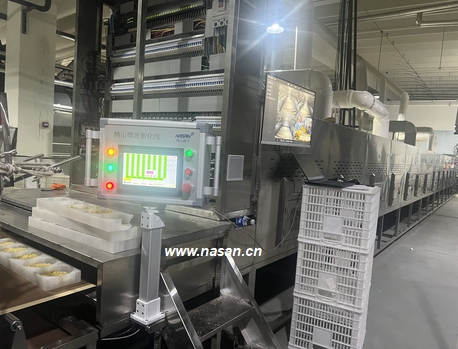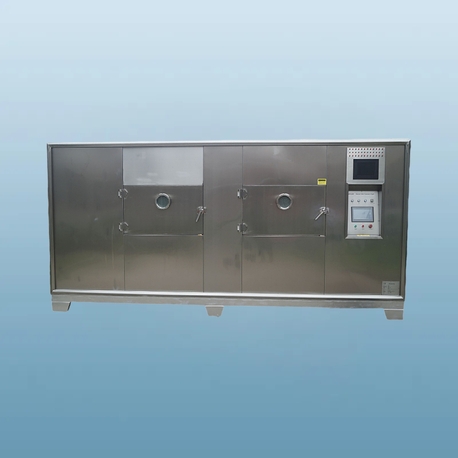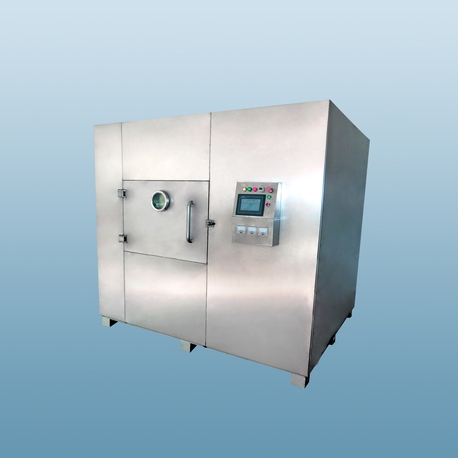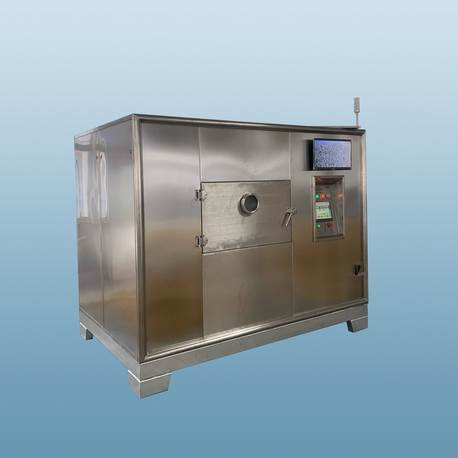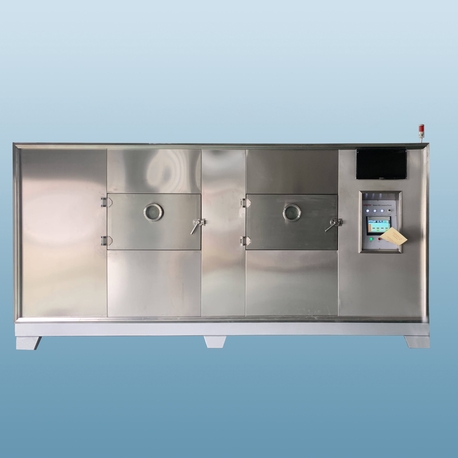In the wood processing industry, managing moisture content is critical for producing high-quality products, from furniture to construction materials. A wood dryer plays an essential role in this process by efficiently reducing moisture levels, preventing issues like warping, mold, and decay. As demand for durable wood products grows, understanding industrial wood dryers becomes vital for businesses aiming to optimize their operations. This article delves into the specifics of industrial wood dryer systems, highlights key manufacturers, explores available wood dryer equipment for sale, and provides practical advice on how to choose an industrial wood dryer that meets your needs. Whether you're a small workshop or a large-scale factory, making an informed decision can enhance efficiency, reduce costs, and improve product quality. Let's start by examining what sets industrial wood dryers apart and why they are indispensable in modern woodworking.
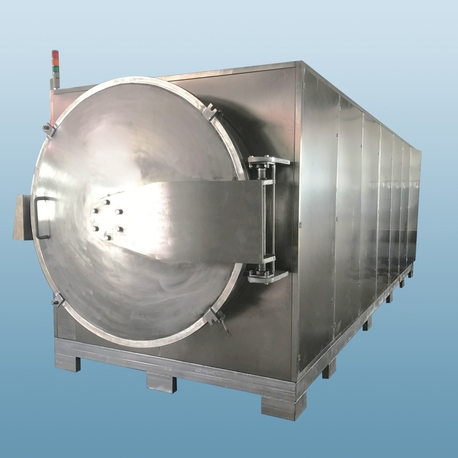
What Is an Industrial Wood Dryer?
An industrial wood dryer is a specialized machine designed to remove moisture from wood on a large scale, typically used in commercial settings such as sawmills, furniture manufacturing plants, and lumber yards. Unlike smaller, domestic dryers, an industrial wood dryer handles substantial volumes of wood, utilizing advanced technologies like forced-air circulation, heat pumps, or vacuum systems to achieve precise moisture content levels. This process is crucial because improperly dried wood can lead to structural weaknesses, reduced lifespan, and customer dissatisfaction. By controlling temperature, humidity, and airflow, these dryers ensure uniform drying, which is essential for maintaining wood integrity. The term "wood dryer" often encompasses various types, but industrial versions are built for durability and high throughput, making them a cornerstone in industries where wood quality directly impacts profitability and sustainability.
Benefits of Using an Industrial Wood Dryer
Investing in an industrial wood dryer offers numerous advantages that extend beyond basic moisture removal. Firstly, it significantly enhances wood stability by reducing the risk of cracking, shrinking, or swelling, which is vital for applications in flooring, cabinetry, and outdoor structures. This leads to higher product quality and fewer returns, boosting customer trust. Secondly, an industrial wood dryer improves efficiency by speeding up the drying process compared to natural air-drying methods. This allows businesses to meet tight production schedules and increase output. Additionally, these dryers contribute to cost savings through energy-efficient designs, as many modern models recycle heat and minimize waste. From an environmental perspective, using a wood dryer can reduce the carbon footprint by optimizing resource use and supporting sustainable forestry practices. Overall, incorporating an industrial wood dryer into your workflow not only safeguards wood properties but also drives operational excellence and competitive edge in the market.
How Industrial Wood Dryers Work
The operation of an industrial wood dryer involves a combination of heat, airflow, and moisture control mechanisms to achieve optimal drying results. Typically, the process begins with loading wet wood into a chamber, where sensors monitor initial moisture levels. Heated air is then circulated through the wood stacks, either via convection, conduction, or radiation methods, depending on the dryer type. For instance, conventional kiln dryers use steam or gas heaters to raise the temperature, while dehumidification dryers extract moisture from the air to reuse energy. Key parameters like temperature, relative humidity, and drying time are carefully regulated through automated controls to prevent over-drying or case-hardening. This precision ensures that the wood reaches the desired moisture content, usually between 6% to 12%, without compromising its structural integrity. Understanding these mechanics is essential when evaluating wood dryer equipment for sale, as different technologies suit various wood species and production scales. By grasping the inner workings, businesses can better appreciate the value of an industrial wood dryer and make informed choices for their specific applications.
Types of Wood Dryer Equipment for Sale
When browsing wood dryer equipment for sale, it's important to recognize the variety available, each tailored to different industrial needs. Common types include kiln dryers, which are widely used for their versatility and ability to handle large batches of wood quickly. These often employ traditional heat sources like gas or electricity and are ideal for hardwoods and softwoods. Another popular option is the dehumidification wood dryer, which uses heat pumps to remove moisture efficiently, making it energy-saving and suitable for environments where humidity control is critical. Vacuum dryers represent a high-tech choice, using reduced pressure to lower the boiling point of water, thus drying wood faster at lower temperatures—perfect for sensitive woods prone to damage. Additionally, solar-powered dryers are emerging as eco-friendly alternatives, harnessing renewable energy for sustainable operations. Each type of industrial wood dryer has its pros and cons; for example, kiln dryers might have higher initial costs but offer faster drying times, while dehumidification models excel in energy efficiency. As you explore wood dryer equipment for sale, consider factors like capacity, fuel type, and compatibility with your wood species to find the best fit.
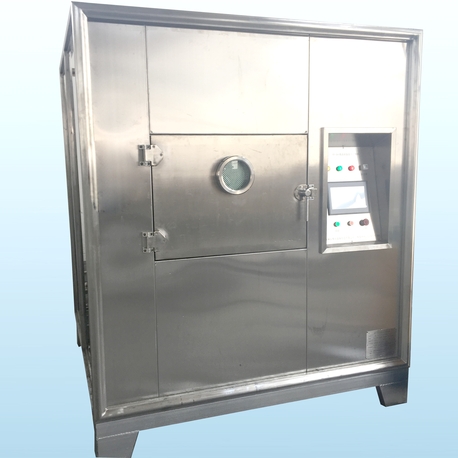
How to Choose an Industrial Wood Dryer
Selecting the right industrial wood dryer is a critical decision that can impact your production efficiency and bottom line. To navigate this process effectively, start by assessing your specific needs, such as the types of wood you process, desired moisture content, and daily throughput. This will help determine the appropriate size and capacity of the dryer. Next, evaluate the energy efficiency of different models; an industrial wood dryer with high efficiency can reduce operational costs and environmental impact. Look for features like insulated chambers, heat recovery systems, and automated controls that optimize performance. Another key aspect is the reputation of the industrial wood dryer manufacturer; choose providers with proven track records, certifications, and positive customer reviews to ensure reliability and after-sales support. Additionally, consider the total cost of ownership, including installation, maintenance, and potential upgrades. It's also wise to request demonstrations or trial runs when possible, as this allows you to see the equipment in action. By following these steps on how to choose an industrial wood dryer, you can invest in a system that delivers consistent results and long-term value for your business.
Top Industrial Wood Dryer Manufacturers
Identifying a reputable industrial wood dryer manufacturer is essential for acquiring durable and efficient equipment. Leading manufacturers in this field often have decades of experience and offer a range of customizable solutions to meet diverse industrial demands. Companies like ABC Dryers Inc. and Global Wood Tech are known for their innovative designs, such as hybrid dryers that combine multiple technologies for enhanced performance. Another prominent name is EcoDry Systems, which specializes in energy-efficient models that align with sustainability goals. When selecting an industrial wood dryer manufacturer, consider factors like research and development capabilities, compliance with international standards (e.g., ISO certifications), and availability of spare parts. Many manufacturers also provide comprehensive services, including installation, training, and maintenance, which can be crucial for seamless integration into your operations. By partnering with a trusted industrial wood dryer manufacturer, you gain access to expert advice and reliable products that minimize downtime and maximize productivity. Always compare multiple suppliers and read industry reviews to make an informed choice that supports your business growth.
Where to Find Wood Dryer Equipment for Sale
Finding reliable sources for wood dryer equipment for sale requires a mix of online research and industry connections. Start by exploring dedicated industrial machinery marketplaces such as Thomasnet, Alibaba, or Equipment Times, which list numerous suppliers offering new and used dryers. These platforms often include detailed specifications, customer ratings, and contact information, making it easier to compare options. Additionally, direct engagement with an industrial wood dryer manufacturer can yield tailored quotes and exclusive deals; many companies have official websites where you can request demos or consultations. Trade shows and exhibitions related to woodworking and forestry are also excellent venues to see wood dryer equipment for sale in person, network with experts, and stay updated on the latest trends. For those on a budget, consider certified pre-owned equipment from reputable dealers, which can provide cost savings without compromising quality. Whichever route you take, ensure that the seller offers warranties and support services to protect your investment. By thoroughly researching available wood dryer equipment for sale, you can secure a machine that aligns with your operational requirements and budget constraints.
Frequently Asked Questions (FAQ)
Q1: What is the average drying time for an industrial wood dryer?
A1: The drying time in an industrial wood dryer varies based on factors like wood species, thickness, initial moisture content, and dryer type. Generally, it can range from a few days for softwoods to several weeks for hardwoods. For example, a typical kiln dryer might take 5-10 days for 1-inch thick lumber, while vacuum dryers can reduce this time significantly. It's best to consult with your industrial wood dryer manufacturer for specific estimates tailored to your materials.
Q2: How much does an industrial wood dryer cost?
A2: The cost of an industrial wood dryer depends on its size, technology, and features. Basic models may start around $10,000, while advanced systems with automation and high capacity can exceed $100,000. When evaluating wood dryer equipment for sale, consider additional expenses like installation, energy consumption, and maintenance. Request quotes from multiple suppliers to compare prices and ensure you're getting good value for your investment.
Q3: Can an industrial wood dryer handle different types of wood?
A3: Yes, most industrial wood dryers are designed to accommodate various wood species, including hardwoods like oak and softwoods like pine. However, the drying settings (e.g., temperature and humidity) need to be adjusted accordingly to prevent damage. It's important to choose a versatile dryer or work with an industrial wood dryer manufacturer who can provide customizable programs for different materials.
Q4: What maintenance is required for a wood dryer?
A4: Regular maintenance for an industrial wood dryer includes cleaning air filters, inspecting heating elements, checking sensors, and lubricating moving parts. This helps prevent breakdowns and ensures efficient operation. Most manufacturers offer maintenance schedules and support services; following these guidelines can extend the lifespan of your equipment and reduce repair costs over time.
Q5: How do I know if an industrial wood dryer is energy-efficient?
A5: To assess energy efficiency, look for features like heat recovery systems, insulation ratings, and energy certifications (e.g., ENERGY STAR). An industrial wood dryer with automated controls can also optimize energy use by adjusting settings based on real-time conditions. When researching how to choose an industrial wood dryer, ask suppliers for energy consumption data and compare it across models to make an eco-friendly and cost-effective choice.
In conclusion, an industrial wood dryer is a vital asset for any wood processing business, offering improved product quality, efficiency, and sustainability. By understanding the different types of wood dryer equipment for sale, evaluating reputable industrial wood dryer manufacturers, and applying practical tips on how to choose an industrial wood dryer, you can make a smart investment that drives long-term success. Remember to consider your specific needs and conduct thorough research to find the perfect fit for your operations.


